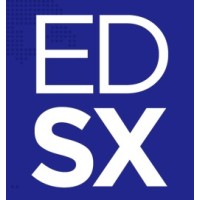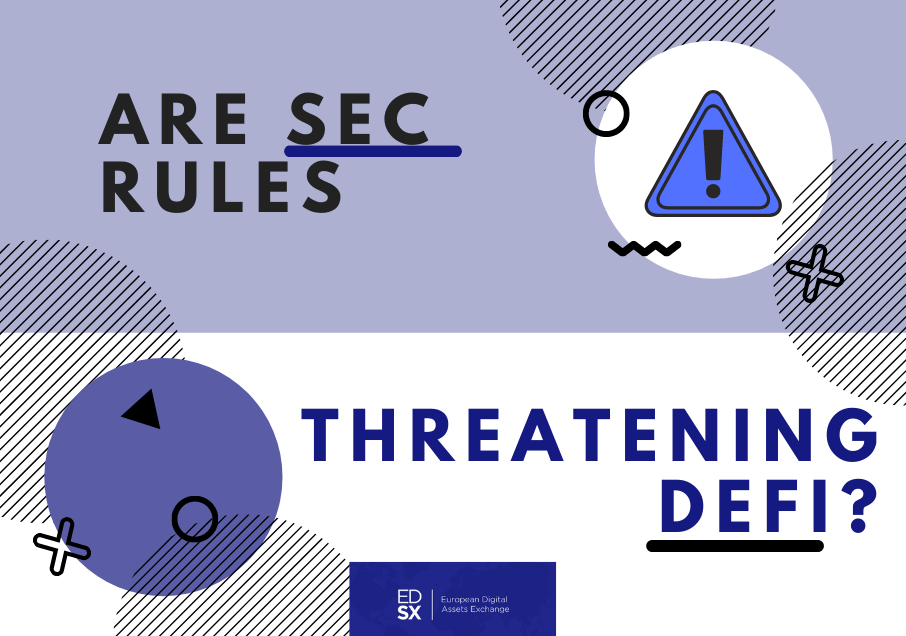New rules recently proposed by the SEC could allow the agency not only to oversee government securities trading systems but also crypto exchanges and digital asset exchange platforms, such as those from DeFi. However would the new SEC rules be a threat to DeFi as a whole?
SEC Commissioner Hester Peirce, known as “crypto mom” stated:
“The proposal includes very expansive language, which, together with the chair’s apparent interest in regulating all things crypto, suggests that it could be used to regulate crypto platforms. The proposal could reach more types of trading mechanisms, including potentially DeFi protocols”
(Chairman Gensler has since declined to comment on these claims.)
What’s SEC, shortly:
- The Securities and Exchange Commission (SEC) is a U.S. government oversight agency responsible for regulating the securities markets and protecting investors.
- The SEC was established by the passage of the U.S. Securities Act of 1933 and the Securities and Exchange Act of 1934, largely in response to the stock market crash of 1929 that led to the Great Depression.
- The SEC can itself bring civil actions against lawbreakers, and also works with the Justice Department on criminal cases.
The SEC consists of five divisions and 24 offices. The agency aims to interpret securities laws and take enforcement actions. It also issues new rules and oversees securities institutions. Additionally, the group coordinates regulation between different levels of government. Their goals include interpreting laws, regulating institutions, setting new standards, and aligning rules across jurisdictions.
The five divisions and their respective roles are:
- Division of Corporate Finance: Ensures investors are provided with material information (that is, information relevant to a company’s financial prospects or stock price) in order to make informed investment decisions.
- Division of Enforcement: In charge of enforcing SEC regulations by investigating cases and prosecuting civil suits and administrative proceedings.
- Division of Investment Management: Regulates investment companies, variable insurance products, and federally registered investment advisors.
- Division of Economic and Risk Analysis: Integrates economics and data analytics into the core mission of the SEC.
- Division of Trading and Markets: Establishes and maintains standards for fair, orderly, and efficient markets.
What the SEC envisions:
The SEC’s new plan would extend current regulations to platforms that trade Treasuries and government bonds. However, the SEC also risks extending the regulations to crypto platforms. By proposing this change, the SEC actively aims to regulate additional platforms. But in doing so, it also runs the risk of overregulation by capturing crypto exchanges in its new rules.
The new proposed regulation aims to bridge a regulatory gap. Currently, exchange platforms do not have to register as exchanges or brokers. However, the proposal would also require “communication protocol systems” to register. While addressing one issue, it expands the scope in another area. The basic idea focuses on filling a gap. Yet it also forces additional entities under regulation beyond just addressing the original problem. Both facets should be considered to understand the full impact and ensure a balanced approach.
This ambiguous definition in fact could also be attributed to crypto exchanges and DeFi platforms.
Gensler himself has repeatedly stated that he believes that many digital assets, but excluding cryptocurrencies like Bitcoin, could be securities, and thus would fall under the SEC’s authority. He has also called for crypto exchanges to have to register with the SEC itself in order to operate in the US, so that it can somehow oversee their operations.
If approved by the commissioners, the proposed rule change will be available to public comment for 30 days upon being listed in the Federal Register. The regulators would then likely vote on the measure, taking any submitted feedback into account.
At this point, it will be necessary for the SEC to provide clarification regarding this issue, and it is likely that among the comments it will receive there will also be some that will refer precisely to crypto exchanges and DeFi platforms.

Based in Zug, the platform is fully compliant with all Swiss laws related to financial intermediaries, banking, anti-money laundering, and organized trading facilities. Among its core values, there are innovative solutions through blockchain technology, which ensures security and liquidity.
EDSX is the first platform in Europe with primary and secondary markets for both institutional and retails. EDSX is a pioneering platform that employs the world’s leading technology to globally list security tokens in both primary and secondary markets, listing digital securities of real financial instruments to the public with a decentralized peer-to-peer exchange. Our goal is to fully engage every aspect of the financial revolution.
Do you have a question for us?
Send your query here:
[email protected]

